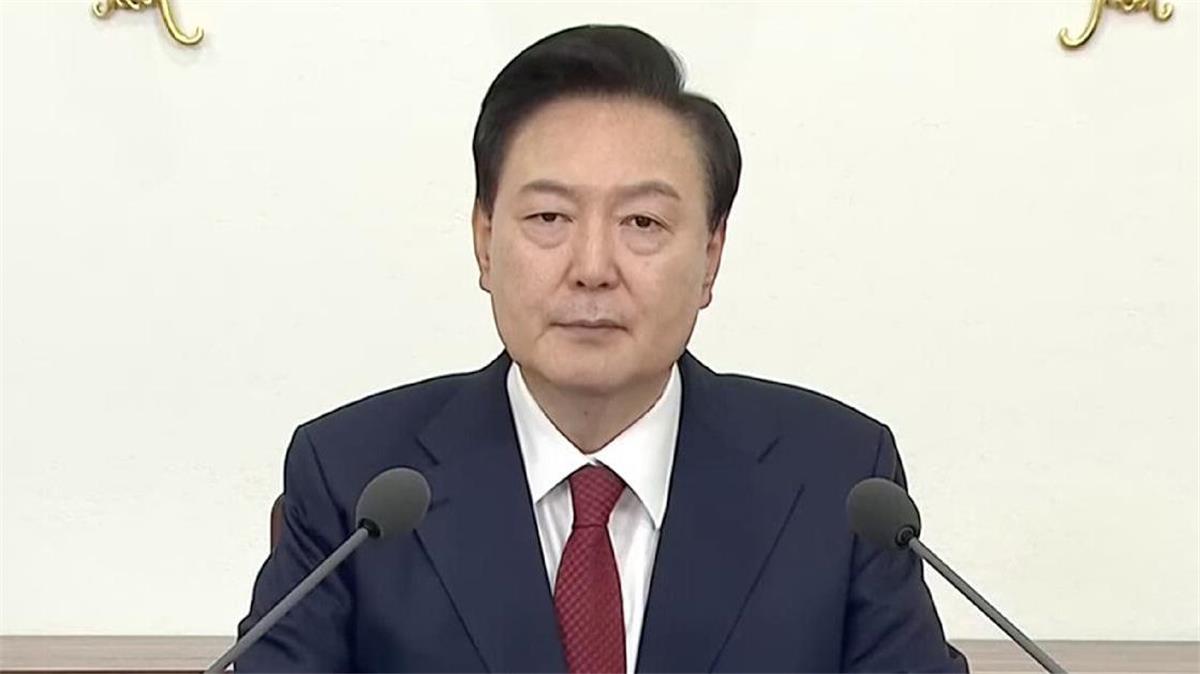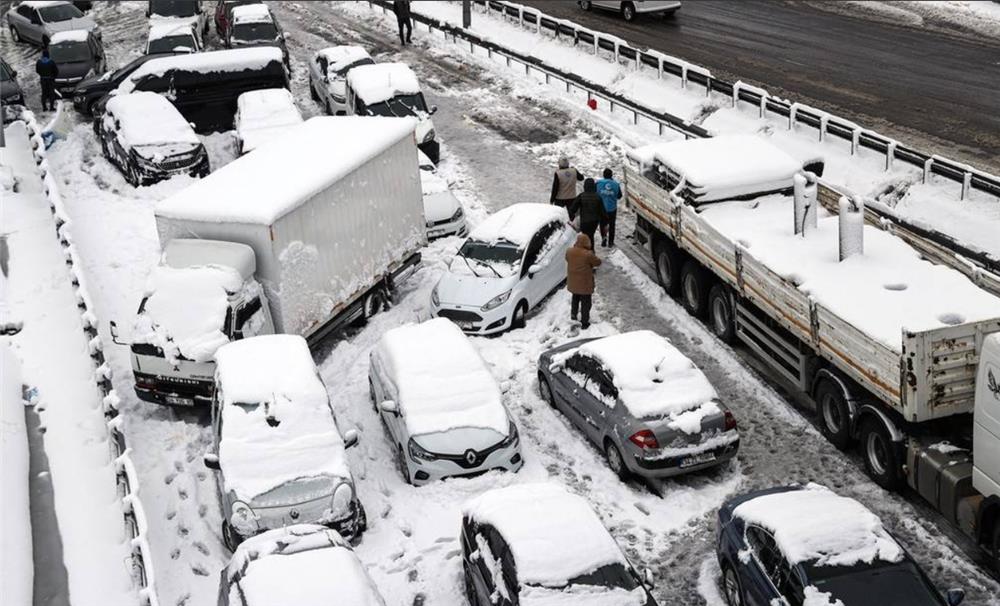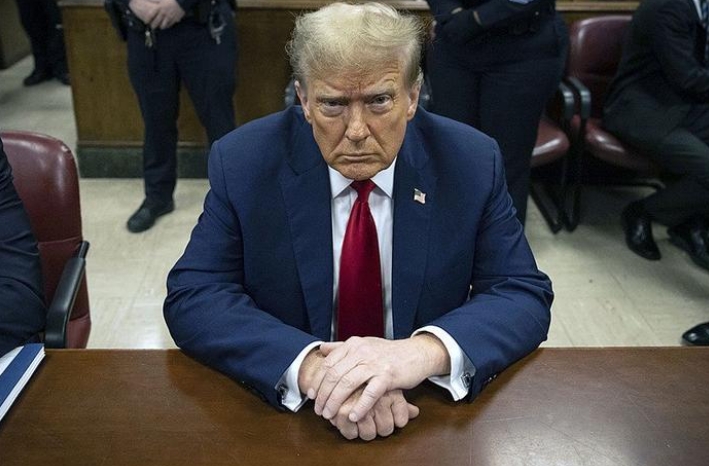Yoon Seok-yeol Evades First Arrest: Despite Warrant, South Korea's Public Prosecutor's Office Reluctant to Enter Presidential Residence

Just days into 2025, another chapter in South Korea's constitutional crisis has played out in the form of a dramatic arrest warrant saga.
On January 3, following a tense standoff lasting over five hours, South Korean investigators failed to arrest the country's impeached president, Yoon Seok-yeol, at his residence in central Seoul.
Why was it so difficult for the authorities to enter the presidential residence? Why did South Korea's Public Prosecutor's Office not forcibly enter the residence? And what is next for Yoon following his evading arrest?
On the morning of January 3, the South Korean public prosecutor's office (CIO) investigation squad arrived at the residence in a vehicle departing from the government's satellite office in Gwacheon, a satellite city of Seoul.
The squad arrived at the presidential residence in Hanam-dong, Jongno-gu, central Seoul, at 7:21 a.m. and entered the residence at 8:02 a.m. after moving a police cordon.
To ensure a smooth operation, officers from the Seoul Metropolitan Police Agency were deployed to the site. They were there to maintain order as the special investigation team attempted to arrest the impeached president.
On January 3, 2024, in Seoul, South Korea, special prosecutors from the country's high-level public officials' crime investigation agency entered the presidential residence to begin their attempt to arrest Yoon Seok-yeol
A total of 150 officers – 30 from the CIO and 120 from the police special investigation team – were involved in the operation. Eighty members of the special investigation team entered the residence, while 70 remained in the residence compound. An additional 2,800 police officers were on standby in case of any violent clashes between investigators and members of Yoon's security detail. Although investigators were able to bypass the perimeter of the presidential residence, protected by the Presidential Security Office (PSO), the operation was unsuccessful when they attempted to enter the residence itself.
A "human wall" consisting of 200 members of the PSO and military personnel barred entry. During the standoff, members of the CIO's special investigation team confronted members of Yoon's security detail and there were some physical altercations. The standoff lasted around five and a half hours.
Many of Yoon's supporters also mobilized to block the road to the official residence, surrounding the area in an effort to prevent the arrest. Footage of the standoff showed the supporters holding both South Korean and American flags, chanting "Revoke the Impeachment!" and "We Will Protect President Yoon Seok-yeol!" The supporters' show of force came a day after some 30 members of the group were seen laying in front of the official residence's main gate in an attempt to block police entering the complex.
Meanwhile, the Blue House remained tight-lipped on whether it would cooperate with the CIO's efforts to arrest the impeached president. The official line was that questions regarding Yoon's legal response to his impeachment should be directed to his legal team.
Ultimately, the CIO announced it would discontinue its efforts to arrest Yoon following a press conference on the afternoon of January 3.
The agency said the decision was made after five and a half hours of deliberation with the police special investigation team, adding it "deeply regrets" the decision and Yoon for "his refusal to respond to the due process of law." All members of the joint investigation team left the presidential residence after the statement.
On January 3, 2024, in Seoul, South Korea, members of the country's high-level public officials' crime investigation agency and police officials leave the residence of impeached South Korean President Yoon Seok-yeol
Many observers had predicted the raid would be difficult to execute, if not impossible, despite the arrest warrant.
The most notable issue was the PSO, which is responsible for protecting the South Korean president and first family. After the arrest warrant was issued on December 31, the PSO issued a statement, saying, "We will carry out our duties to protect [Yoon] in accordance with the law in the event of an attempted arrest by the CIO."
In November, the PSO had prevented investigators from entering the Blue House and a safehouse in central Seoul by citing the country's criminal procedure act, which prohibits investigators from entering military- or state-owned buildings without the consent of those in charge.
Members of the PSO maintained that stance during the attempted arrest on January 3. Despite the CIO investigators' presentation of the arrest and search warrants, the PSO continued to block investigators' entry, once again citing the country's criminal procedure act and the fact that the presidential residence is designated as a "security zone." The PSO's actions led to the "human wall" that stopped the investigators from entering the residence.
On January 3, 2024, in Seoul, South Korea, South Korean investigators attempted to arrest Yoon, but were blocked by his security team at the presidential residence
Another issue was the arrest warrant itself.
The arrest and search warrants issued by the Seoul Western District Court explicitly excluded criminal procedure act articles 110 and 111, which forbid investigators from entering military- or state-owned buildings and seizing documents belonging to public officials without the consent of military generals or government officials. In South Korea, the PSO is considered a military organization, and its members are military personnel.
Some observers argued that the PSO was committing an illegal act by blocking the CIO investigators, given that the arrest warrant did not require the consent of the PSO's director, Park Jung-joon. However, the legality of the arrest warrant remained ambiguous, as opinions within the South Korean legal community were divided on whether the court was allowed to exclude articles 110 and 111 when issuing the arrest warrant.
Many legal experts argued that the court's decision was unprecedented and amounted to judicial overreach. "I have never seen any court decision that arbitrarily restricts a legal provision and uses it as a basis to issue an arrest warrant," said Kim Sang-gon, a criminal lawyer and professor at Sungkyunkwan University's law school.
However, other legal experts argued that although the criminal procedure act includes articles 110 and 111, investigators are permitted to enter state-owned buildings without prior consent from military generals or government officials when the case relates to a crime that threatens the country's major interests.
In Yoon's case, the court's decision appeared to reflect its belief that he was planning an internal rebellion to overthrow the country's constitutional order. The court argued that Yoon issued the country's first state of emergency on December 3 in order to disrupt South Korea's constitutional order. The Seoul Western District Court thus decided to exclude articles 110 and 111 when issuing the arrest warrant.
The court's decision left room for the PSO to block the CIO investigators from entering the residence.
The last issue that may have prevented the arrest was Yoon's supporters. Thousands of Yoon supporters had gathered outside the presidential residence since December 30, when the South Korean parliament impeached their leader.
On January 2, about 10,000 Yoon supporters gathered in front of the residence, a number that was double the previous day's turnout. The large number of protesters meant that law enforcement officers would likely have to use force or break through a "human wall" to reach the residence's main gate.
On January 2, 2024, in Seoul, South Korea, Yoon supporters gather outside the residence of their impeached president in protest of the South Korean parliament's impeachment of him. A large screen behind displays a photograph of Yoon
What's next?
After the failed arrest attempt, CIO officials said they would seek a new warrant by the January 6 expiration of the current one. But they would not say when they would try to arrest him again nor whether they would use force.
On the afternoon of January 3, a day after the attempted arrest, the joint investigation team comprising the CIO and the police special investigation team opened an investigation into the PSO for obstruction of justice and demanded that Park appear before the team on January 4.
South Korea's criminal procedure act requires prosecutors to apply for a detention order within 48 hours after arresting a suspect. If they fail to do so, the suspect must be released.
The CIO said it would apply for Yoon's detention if the arrest was successful. But it did not reveal whether its investigators had prepared for Yoon's possible detention, such as by designating an interrogation site.
On January 3, South Korea's constitutional court finished its second pre-trial hearing and announced that Yoon's impeachment trial at the top court would begin with a public debate on January 14 and a second on January 16.
But Yoon's fight is far from over. The impeachment trial could result in his removal from office and trigger a presidential election within 60 days. If the constitutional court overturns the impeachment, Yoon would be reinstated as the country's president.
 Famous Persons
Famous Persons English
English
 John
John Facebook
Facebook Twitter
Twitter Pinterest
Pinterest Linkin
Linkin Email
Email Copy Link
Copy Link









